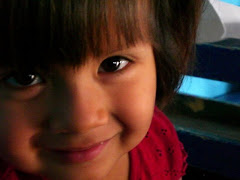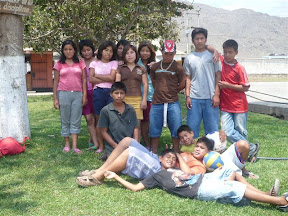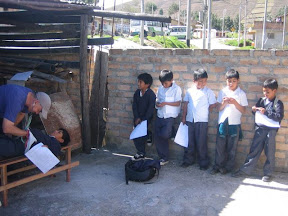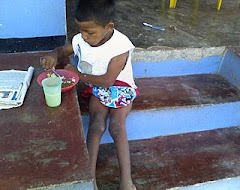The Journey (Tony)
Dropping out of the air into Cusco is a magical landing that everyone should see; coming in over the Andes, the jet must drop into the mountain valley, carefully navigating large foothills with little houses you can pinch at the end of your fingers through the jet’s windows; and then must twist to an upwind position for a touch down that the straight-faced engineers at NASA would applaud. Truly: failure is not an option. If only I could be so enthusiastic about the taxi ride that followed. We had flown to Atlanta for four hours, only to hang out in a long lay over; then flown to Lima, only to hang out in a long lay over, (unable to sleep in the airport chapel as promised because of a jack hammer doing construction); then had leapt over the Andes in a seemingly brief one-hour jump that placed us reasonably close to the Sacred Valley 24 hours later—where our hotel in Urubamba promised a little sleep and a return to sanity. After a nap, we would go to the orphanage down the road in Huayabamba.
In the United States, my wife Natalie knows me as a fast driver—hinting that I’m a bit too aggressive for her taste. To that, I have tried to calm my temperament and my habits, reminding myself that we have all the time we need to get to the next destination. After a few minutes in the taxi after leaving the airport, I quit repenting my driving entirely—because it doesn’t rate on the Richter scale required to describe the drama a cab ride represents. Flying mere inches from oncoming cars through Cuzco traffic put the pilot’s magic landing on the tarmac completely to shame.
From the city center, our driver headed out on a short-cut over the mountains instead of a more conventional route. This we agreed to at the airport, not knowing the consequences, but agreeing to it because we understood that it was his requirement in exchange for the nominal fee we offered—and Natalie, I would find, is a bargain hunter.
Up the mountain we ripped, often in the wrong lane, tearing rubber off the wheels and honking at pedestrians, animals, slow cars, and slower trucks. Up and up we flew to see the same scenes we had seen from the jet, but close up. And up and up my stomach crawled into my throat as the guff and fart of aging trucks, aging busses, aging motorcycles, and unknown combinations of parts on four wheels flooded the terraced mountains and hillside slums with thick, black and blue smoke that smelled of unburned gas and diesel. Then over the mountain and down the broken road, the curves got only worse and I thought that if the car didn’t hurl itself over the next hair-pin, my stomach would certainly hurl into the front seat.
At last we began to see a green valley below. As we got closer, I thought I would kiss the ground when we came to a standstill. I hadn’t felt any such impulse when we had dropped out of the
Throughout our trip, diesel fumes and raw gas would haunt rides from back and forth, wherever we went, and even the trip to Machu Picchu on the train felt like sleeping next to an exhaust pipe, but that first cab ride would take the prize. I think it was my initiation into the developing world.
Now initiated, I could look around at the high peaks and the cute mountain valley we had come to visit. I could feel at home as my instincts said I should. I could look forward to meeting the children-especially those I hoped would become my own.










